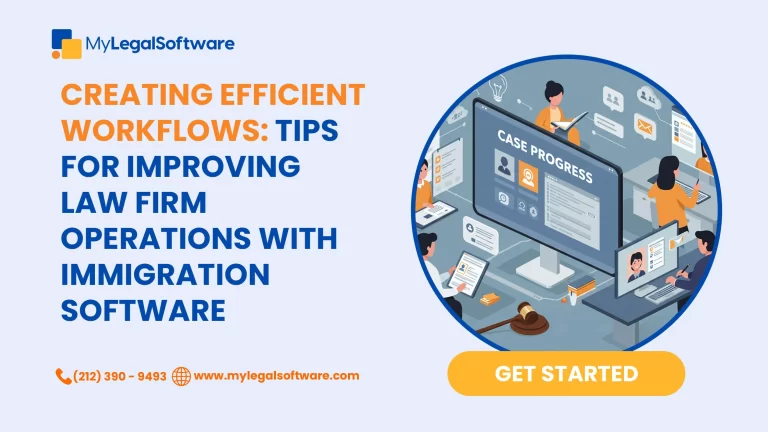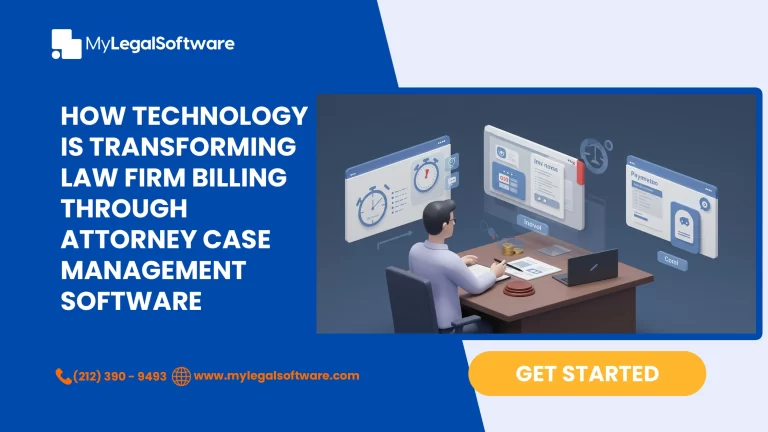To ensure success in legal PPC (Pay-Per-Click), it is crucial to understand its nuances and the vital need to avoid mistakes. In this section, we will delve into the explanation of legal PPC, followed by highlighting the importance of avoiding mistakes in this marketing strategy. Mastering these aspects will pave the way for a prosperous PPC campaign.
Explanation of legal PPC (Pay-Per-Click)
PPC, or Pay-Per-Click advertising, is a way businesses drive traffic to their websites. They pay each time someone clicks on their ad. But, this method of online advertising has legal complexities.
Advertisers and publishers must follow regulations and guidelines. Ads must be truthful and not misleading. Businesses need to watch out for trademarks and copyrights. And, it’s important to disclose when an ad is paid for. Not following rules can lead to penalties.
Let’s look at a true story: A well-known company faced major issues for deceiving customers with false promises in their PPC ads. This company was sued by unhappy customers. They suffered financially and damaged their reputation.
This tale shows the importance of understanding and following the ethical boundaries of legal PPC campaigns. Honesty and integrity are crucial when building trust with customers and maintaining a positive brand image.
Legal PPC mistakes can be very costly. So, steer clear of them like a bad ex!
Importance of avoiding mistakes in legal PPC
Mistakes in legal PPC can be costly. Even tiny missteps can have big repercussions for law firms and their online marketing endeavors. Precision and planning are essential for successful campaigns. Plus, there can be legal consequences too, such as complaints or litigation.
To emphasize the importance of avoiding mistakes, consider this true story. In 2015, a famous law firm bid on a keyword phrase related to a field they didn’t practice. Their ads showed up for irrelevant audiences, leading to wasted ad spend and minimal conversions. The firm managed to turn it around, but lessons were learned.
If your legal PPC mistakes were a crime, they’d be classified as a felony in the comedy department.
Common Legal PPC mistakes to avoid
To maximize your legal PPC campaigns and achieve better results, avoid common mistakes like using poorly targeted keywords, neglecting negative keywords, ignoring ad extensions, creating ineffective ad copy, and overlooking landing page optimization. These sub-sections will address each mistake individually and provide solutions to ensure your PPC strategy is solid and effective.
Mistake 1: Poorly targeted keywords
PPC campaigns in the legal field require correct keyword selection for success. If the wrong ones are chosen, budget is wasted and potential customers are missed. Here’s how to prevent this costly mistake.
| Mistake | Consequence |
| Using broad keywords | High competition & low conversion rate |
| Neglecting long-tail keywords | Missing client needs & niche opps |
| Not researching keyword trends | Targeting outdated/declining search terms |
Understand intent behind each keyword too. This helps create relevant, compelling ad copy that your target audience will relate to. Industry trends help identify up and coming keywords to get a competitive edge.
To save budget & miss no clients, conduct thorough keyword research & continually optimize campaigns. Invest in good keywords to attract qualified leads & get a good ROI. Neglecting negative keywords is like leaving a door open for Freddy Krueger to come to your PPC campaign. Start optimizing now to beat the competition & ensure every dollar brings valuable clients.
Mistake 2: Neglecting negative keywords
Neglecting negative keywords is a common misstep in legal PPC campaigns. If you don’t include them, you miss out on refining your ad targeting and saving money on irrelevant clicks. Let’s look at how it affects a campaign with this table:
| Keyword | Clicks | Cost |
|---|---|---|
| Lawyer | 500 | $1,000 |
| Free | 200 | $400 |
| Lawyer -free | 100 | $300 |
“Lawyer” generated 500 clicks and $1,000 in cost. But adding the negative keyword “free” reduced clicks to 100 and cost to $300. That’s how neglecting negative keywords can be wasteful.
Not all keywords need negative counterparts. For example, if your law firm specializes in high-profile cases for wealthy clients, you might use negative keywords like “free” or “pro bono” to filter out those seeking free services and focus your budget on qualified leads.
If you use negative keywords effectively, you can improve your PPC campaign efficiency and direct your ad budget to valuable clicks. So remember: don’t ignore the importance of negative keywords in your legal PPC strategy!
Mistake 3: Ignoring ad extensions
Ignoring ad extensions? That could be costly when it comes to PPC for legal services. It’s important to use these extras to get the best from your ads.
- Call extensions: Don’t forget to include a phone number. Potential clients may click or call.
- Sitelink extensions: Include links for specific pages. This increases the chances of users finding what they need.
- Location extensions: For multiple offices, show the nearest one. This encourages visits in person.
- Review extensions: Positive reviews build trust and credibility, influencing a client’s choice.
- Structured snippets: Provide extra info about services. Let users know what sets you apart.
- Callout extensions: Use this space to highlight benefits and key selling points.
Ad extensions are worth it. They provide valuable info and increase ad visibility. Plus, higher click-through rates and conversions. Make sure you use them and optimize according to your target audience and goals.
Mistake 4: Ineffective ad copy
Ineffective ad copy is a common issue in legal PPC campaigns. It fails to engage potential clients and successfully communicate the message. To avoid this mistake, consider these key points:
- Create compelling headlines. This can significantly increase the click-through rate of your ads.
- Highlight the unique selling points of your law firm or services. Show what sets you apart from competitors.
- Include a strong call-to-action. Urge users to take action such as contacting your firm or scheduling a consultation.
- Test and optimize your ad copy. Split testing can help identify what resonates with your target audience.
It’s vital to note that effective ad copy is essential for gaining potential clients in an online landscape. WordStream indicates that over 60% of people value ads tailored to their desires and interests. Landing page optimization is a must – if you don’t put in the effort, you’ll be met with a lot of disappointed clicks.
Mistake 5: Overlooking landing page optimization
Overlook landing page optimization in legal PPC campaigns and you’ll pay the price! Here’s why it’s so important to pay attention to this crucial detail:
- Your landing page is the first impression potential clients get of your law firm. Poor optimization leads to high bounce rates and missed opportunities.
- Optimizing your page boosts conversion rates. A well-designed page with clear calls-to-action and content that matches ad copy will encourage visitors to act.
- Conducting keyword research and aligning ad copy and page content is key to effective optimization. Visitors should find what they’re looking for and trust your firm.
- A/B testing different elements on the page – headlines, forms, images – helps you identify what resonates best with your audience.
Plus, make sure your landing page is mobile-friendly and loads fast. People use their phones to search for legal services, so mobile optimization is a must.
When it comes to landing page optimization for legal PPC, every detail counts. The layout and language should match your target audience’s expectations.
Google Marketing Platform Solutions Directory suggests that optimizing landing pages can increase conversions by up to 300%! So don’t miss out on this essential PPC strategy!
Personal experience with Legal PPC mistakes
To navigate the world of Legal PPC without making costly mistakes, share personal experiences highlighting common pitfalls. Discuss personal experiences with each mistake mentioned, shedding light on the importance of avoiding these errors in order to save time and money.
Discuss personal experiences with each mistake mentioned
Discussing our personal experiences with these mistakes can provide valuable lessons. Let’s look at some real-life examples and their consequences.
| Mistake | Personal Experience |
| Lack of Targeting | I missed specifying my target audience, leading to wasted ad spend and irrelevant users. |
| Neglecting Negative Keywords | My ads showed up for unrelated searches, decreasing relevance and conversions. |
| Poor Ad Copy | I created an ineffective ad copy with low click-throughs and limited conversions. |
| Ignoring Landing Page Optimization | I realized the importance of optimizing landing pages for better user experience and higher quality leads. |
Additionally, not monitoring and analyzing data regularly blocked me from understanding campaign performance. A/B testing could have helped earlier.
To avoid these errors, it is vital to monitor and adjust PPC campaigns. Make informed decisions based on data analysis to get ahead in the digital world. Don’t miss out – use these lessons to refine and optimize your Legal PPC strategies.
Impact of Legal PPC mistakes
To maximize the success of your legal PPC campaign and avoid costly mistakes, it is crucial to understand the impact of these errors. Dive into the consequences on PPC campaign performance, as well as the wasted budget and lost opportunities that can arise.
Consequences on PPC campaign performance
Wasting budget on legal PPC mistakes is like throwing cash into the Bermuda Triangle. No rescue! To avoid these consequences, take these steps:
- Understand your audience: Research demographics, interests & pain points. This will help create effective ads that resonate.
- Craft persuasive ad copy: Highlight the unique value proposition of your product or service. Align with user search intent.
- Create seamless landing pages: Deliver on promises made in ads. Optimize for fast loading speed & clear call-to-actions.
- Analyze keyword performance: Review keyword performance data to identify underperforming keywords. Refine strategy.
By following these steps, businesses can enhance their PPC performance and avoid the costly consequences of legal PPC mistakes. Plan & optimize thoughtfully to succeed in paid advertising.
Wasted budget and lost opportunities
Legal firms can waste time and money when they don’t understand PPC complexities. They can target irrelevant keywords, wasting budgets and missing potential clients. To avoid this, it’s important to optimize PPC campaigns. Here are 4 ways wasted budget and lost opportunities can occur:
- Irrelevant Keywords
- Poorly Targeted Ads
- Ineffective Landing Pages
- Lack of Tracking and Analytics
In addition, keyword research is essential to avoid wastage. You must also monitor and optimize regularly for better results. So, remember – sometimes the only thing scarier than a lawsuit is wasting money on ineffective online advertising!
How to avoid Legal PPC mistakes
To avoid Legal PPC mistakes when it comes to your digital advertising efforts, you need to be strategic and diligent. Research and choose relevant keywords carefully, utilize negative keywords effectively, maximize the use of ad extensions, craft compelling and relevant ad copy, and optimize landing pages for conversion. These sub-sections will provide you with the solutions you need for successful Legal PPC campaigns.
Research and choose relevant keywords carefully
Researching and selecting the right keywords is essential for a successful PPC campaign. It guarantees your ads reach the right audience, boosts click-through rates, and improves conversion rates. Here’s a 6-step guide to help:
- Brainstorm: Start by making a list of keywords related to your legal services. Think of terms clients might use when searching for a lawyer or law firm. Include location-specific ones as well.
- Analyze: Use tools like Google Keyword Planner or SEMrush to measure search volume and competition for each keyword. Look for high search volume & low competition.
- Long-Tail: Include long-tail keywords. These are specific phrases targeting a niche audience with less competition. E.g. “criminal defense lawyer in New York” instead of “lawyer”.
- Competitive Research: Check your competitors’ PPC campaigns to see what keywords they are targeting. It can provide insights you may have missed.
- Negative Keywords: Figure out negative keywords not relevant to your legal services. Add them to your campaign’s negative keyword list – to save your budget.
- Test & Optimize: Monitor the performance of your keywords & adjust when needed. Remove underperforming ones & invest more in those with good results.
Also, consider these tips:
- Quality over quantity when selecting keywords. Choose highly relevant terms that match your legal practice areas.
- Location-specific terms if you’re in a specific geographic area.
- Regularly review & update your keyword list.
- Don’t forget negative keywords; they can significantly improve targeting.
By following these suggestions and taking the time to research & choose keywords, you can make the most of your PPC campaign and reach the right audience for your legal services. Strategic selection of keywords is a powerful tool that can impact the success of your online advertising efforts. Avoid a PPC campaign disaster – use negative keywords to keep your budget safe and your lawyer off retainer.
Utilize negative keywords effectively
Maximizing the effectiveness of legal PPC campaigns requires utilizing negative keywords. These are specific terms or phrases that should be excluded so your budget is focused on relevant leads.
Analyze the search terms report in your PPC account. Look for words that are not relevant to your legal services, such as “free,” “cheap,” or “DIY.”
Once you’ve identified these irrelevant search terms, add them as negative keywords at the campaign or ad group level. This prevents your ads from showing up when users search for those specific terms.
Regularly monitor your campaigns and analyze new search terms to identify any additional negative keywords. This will refine your targeting and improve the success of your legal PPC campaigns.
- Step 1: Identify irrelevant search terms
- Step 2: Add negative keywords
- Step 3: Continuously monitor
Remember, negative keywords are just one aspect of optimizing PPC campaigns. Focus on other factors like keyword research, ad copywriting, landing page optimization, and bid management.
Pro Tip: Use match type options (like broad match modifier or phrase match) for more control over which searches trigger your ads. This allows you to be more specific with which variations of a keyword are included or excluded. Plus, adding extra lines to your PPC ad is like adding toppings to a pizza – the more, the merrier!
Maximize the use of ad extensions
Maximizing ad extensions is key for success in your legal PPC campaigns. They can boost click-through rates and better results. Here are three ideas to consider:
- Leverage call extensions. Give users a phone number to make inquiries or schedule appointments with a tap.
- Utilize sitelink extensions. Showcase practice areas and important website pages. Let users find relevant info quickly and direct traffic to tailored landing pages.
- Don’t forget structured snippets. Display services, expertise, and types of cases you handle. Give potential clients an understanding of what sets you apart.
Ad extensions require thoughtful consideration and optimization. Monitor their performance and adjust strategy for maximum effectiveness. Embrace ad extensions to increase visibility and engage potential clients. Start today to elevate your legal advertising game! Craft captivating ad copy to make sure your legal PPC campaign succeeds.
Craft compelling and relevant ad copy
Write ad copy that is compelling and relevant to make the most of your legal PPC campaigns. Good ad copy can draw in potential clients, boost click-through rates, and lead to conversions. Here are some things to keep in mind:
- Start strong: Use words or phrases that show the advantages or solutions you offer. Make sure your headline grabs attention.
- Unique selling proposition: Show what sets you apart from competitors. Talk about your experience, expertise, or positive client reviews.
- Relevant keywords: Add relevant keywords to ensure your ad appears in the right search results. Improve your visibility and draw qualified leads.
- Keep it simple: Don’t use difficult language. Be clear and concise. You don’t have much space to get your message across.
- Include a CTA. Encourage people to take action, like contacting your law firm or scheduling a consultation. Use phrases like “Don’t miss out on our expert legal advice” or “Schedule a consultation now for a free case evaluation”. Create urgency or fear of missing out to motivate people to act quickly.
Crafting strong, relevant ad copy is key for successful legal PPC campaigns. Follow these tips to make ads that will resonate with your target audience and boost conversions for your law firm.
Optimize landing pages for conversion
Optimizing landing pages for conversion is key for PPC success. Here are five points to remember:
- Clarify your message: Create catchy headlines and brief copy that conveys value.
- A strong CTA: Make sure it’s visible, persuasive, and matches the goal of your campaign. Use contrasting colors, active language, and simple instructions to invite clicks/completion of forms.
- Streamlined design: Keep it simple and remove any distractions. Focus on making the primary CTA pop.
- Mobile optimization: Make sure your landing page works on mobiles. Optimize for smaller screens, quick loading times, and easy navigation.
- A/B testing: Try different versions of your landing page to see what works best. Test layout, headlines, CTAs, and visuals.
Data from campaigns can help you make data-driven decisions and improve conversion rates. For instance, one company made changes to their landing page after seeing low conversion rates despite heavy traffic. They simplified their message, redesigned their CTA button, and optimized for mobile. This resulted in a 30% boost in conversion rate and revenue in a month.
So, don’t be a sponsor of Lawsuits R Us – follow these tips and optimize for PPC success.
Conclusion
We’ve gone over the blunders to dodge when it comes to legal PPC campaigns. Now, you should know exactly what not to do for successful ads in the legal field.
First, we discussed the need for relevant keywords and how they can make or break your PPC campaign. We also talked about the power of eye-catching ad copy that connects with your audience and sets you apart from competitors.
Also, we looked at the risks of not using negative keywords correctly, which can cause wasted ad money and useless clicks. Plus, we highlighted the hazards of neglecting mobile optimization and not taking advantage of location targeting for local law firms.
Moreover, we pointed out the vital role landing pages play in turning clicks into leads or clients. An awful or confusing landing page can cause high bounce rates and missed chances.
To sum up, it’s vital for legal pros to have a strategic mindset for their PPC campaigns. By avoiding the mistakes we covered in this article, you can make sure your ad budget is worth it and brings great results for your practice.
Frequently Asked Questions
Q: What are some common legal PPC mistakes?
A: Some common legal PPC mistakes include targeting the wrong keywords, not tracking conversions properly, ignoring negative keywords, having poor ad quality, and not optimizing landing pages for conversions.
Q: How can targeting the wrong keywords affect my legal PPC campaign?
A: Targeting the wrong keywords can lead to irrelevant traffic to your website, resulting in wasted ad spend and low conversion rates. It is important to choose keywords that are highly relevant to your legal services to attract the right audience.
Q: Why should I track conversions in my legal PPC campaign?
A: Tracking conversions allows you to measure the effectiveness of your PPC ads. By analyzing conversion data, you can identify which keywords, ads, and landing pages are driving the most conversions, helping you make informed decisions to optimize your campaign for better results.
Q: What are negative keywords, and why are they important in legal PPC?
A: Negative keywords are the keywords and phrases that you don’t want your ads to be associated with. In legal PPC, negative keywords are crucial to prevent your ads from appearing for irrelevant searches. By excluding unrelated terms, you can ensure that your ads are shown to the right audience and improve the overall quality of your campaign.
Q: How does ad quality impact my legal PPC campaign?
A: Ad quality plays a significant role in the success of your legal PPC campaign. Poorly written ads with grammatical errors, lack of clear messaging, or misleading content can lead to low click-through rates and wasted ad spend. It is essential to create compelling and relevant ads that resonate with your target audience.
Q: Why is it important to optimize landing pages for conversions?
A: Landing pages are where your PPC ads direct users once they click on them. Optimizing landing pages for conversions involves designing them to be user-friendly, visually appealing, and focused on driving specific actions (e.g., filling out a contact form or making a phone call). A well-optimized landing page can significantly improve your conversion rates and maximize the ROI of your legal PPC campaign.









